The BBC’s coverage of the thousands of atrocities against Israeli civilians carried out by Hamas on October 7th has rekindled long-standing criticism concerning the corporation’s editorial guidelines on ‘Use of Language’ when reporting acts of terror.
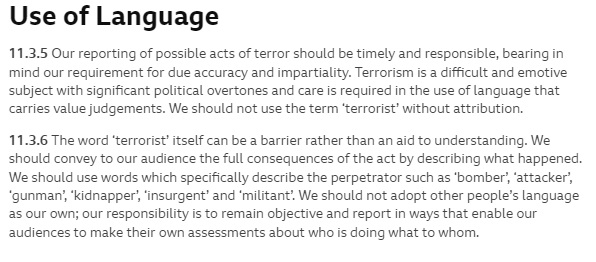 The BBC’s use of terminology such as “gunmen” and “militants” rather than terrorists was the topic of articles in several British newspapers, comment from the prime minister, government ministers and public figures, a letter to OFCOM from senior barristers and much public discussion.
The BBC’s use of terminology such as “gunmen” and “militants” rather than terrorists was the topic of articles in several British newspapers, comment from the prime minister, government ministers and public figures, a letter to OFCOM from senior barristers and much public discussion.
After several days, the BBC decided to try to do damage control in the form of an article published on the BBC News website on October 11th under the title “Why BBC doesn’t call Hamas militants ‘terrorists’ – John Simpson”.
Why the BBC’s World Affairs editor was selected to be the face for an article about editorial policy is unclear. No less curious is BBC’s the choice of John Simpson for pushback against criticism of its coverage of a story involving Israel given a record which includes his decade-old promotion of the trope that “the Israeli tail usually seems to wag the American dog”, his 2014 admiration of Hamas’ “real feat of engineering” and his 2019 allegation that Israel ‘interferes’ and ‘acts like a bully’ in Lebanon.
The argument put forward by Simpson is as follows: [emphasis added]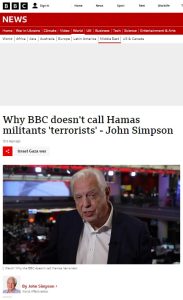
“Terrorism is a loaded word, which people use about an outfit they disapprove of morally. It’s simply not the BBC’s job to tell people who to support and who to condemn – who are the good guys and who are the bad guys.
We regularly point out that the British and other governments have condemned Hamas as a terrorist organisation, but that’s their business. We also run interviews with guests and quote contributors who describe Hamas as terrorists.
The key point is that we don’t say it in our voice. Our business is to present our audiences with the facts, and let them make up their own minds.”
Contrary to Simpson’s claim, the term terrorism is not a label of disapproval but a description of methods and actions. The term describes the use violence as a means – rather than end aims of which one may approve or disapprove – as explained by the philosopher William Vallicella in 2009:
“So there are two reasons to avoid ‘One man’s terrorist is another man’s freedom fighter.’ The first is that it rests on a confusion of means and ends. Describing a combatant as a terrorist, I describe his means not his end; describing a combatant as a freedom fighter, I describe his end not his means. A second reason to avoid the saying is because the saying suggests falsely that there is no fact of the matter as to whether or not a person is a terrorist. There is: a combatant is a terrorist if and only if he employs terror as a tactic in the furtherance of his political goals. It doesn’t matter what his goal or end is. It might be the noble one of freedom from oppression. Or it might be base one of domination and exploitation. What makes him a terrorist is the means he employs.”
Interestingly, following a number of terror attacks in Europe in 2016, the BBC did manage to find a “working definition” of terrorism for its own use:
“Terrorist attacks are acts of violence by non-state actors to achieve a political, social, economic or religious goal through fear, coercion or intimidation.”
Simpson’s claim that “It’s simply not the BBC’s job to tell people who to support and who to condemn – who are the good guys and who are the bad guys” is of course particularly ridiculous given that, according to his argument, the corporation has repeatedly done precisely that on numerous occasions over the years. Among the many examples documented in our archives are the following:
London: ABSURDITY OF BBC’S ‘LANGUAGE WHEN REPORTING TERRORISM’ GUIDANCE ON DISPLAY AGAIN
London: BBC AGAIN IGNORES ITS OWN EDITORIAL GUIDELINES IN LONDON TERROR REPORTS
Stockholm: BBC’S VEHICULAR TERRORISM DOUBLE STANDARDS ON DISPLAY AGAIN
Barcelona: BBC BIAS ON TERRORISM HIGHLIGHTED AGAIN IN REPORTS FROM SPAIN
Tunisia: THE BBC, TERRORISM AND ‘CONSISTENCY’
Norway: MAPPING THE BBC’S INCONSISTENT USE OF THE WORD ‘TERROR’
Germany: BBC PORTRAYAL OF ATTACKS ON SYNAGOGUES DIFFERS ACCORDING TO LOCATION
Duma: BBC DOUBLE STANDARD ON USE OF THE WORD ‘TERROR’ REACHES NEW PEAK
Europe: BBC NEWS FINDS TERROR (WITHOUT QUOTATION MARKS) IN EUROPE
Nice: REVIEWING BBC REPORTING OF VEHICULAR ATTACKS IN FRANCE AND ISRAEL
CAMERA UK and members of the public have submitted numerous complaints to the BBC on this issue, including these:
NO TERROR PLEASE, WE’RE THE BRITISH BROADCASTING CORPORATION
BBC COMPLAINTS: TERROR ATTACKS IN JERUSALEM AND TUNISIA ARE “VERY DIFFERENT”
A NEW BBC ‘EXPLANATION’ FOR ITS DOUBLE STANDARDS ON TERROR
BBC COMPLAINTS CLARIFIES DISCREPANCIES IN TERMINOLOGY WHEN REPORTING TERRORISM
Notably, OFCOM has rubber-stamped the BBC’s inconsistent use of the term terrorism despite having adopted the UK government’s definition.
In 2018 CAMERA UK made a submission to a public consultation on the topic of proposed amendments to the BBC’s editorial guidelines in which we noted – to no avail – that:
“It is obviously futile to reuse the same editorial guidelines which BBC journalists have been openly – and rightly – breaching for years in reports on terrorism in Europe and the UK. The issue of continuity in reporting acts of terror wherever they occur is clearly a major point which this draft guideline does not adequately address.”
Simpson’s article goes on to promote the false claim that Israel intentionally attacks “civilian targets”:
“During the 50 years I’ve been reporting on events in the Middle East, I’ve seen for myself the aftermath of attacks like this one in Israel, and I’ve also seen the aftermath of Israeli bomb and artillery attacks on civilian targets in Lebanon and Gaza. The horror of things like that stay in your mind forever.
But this doesn’t mean that we should start saying that the organisation whose supporters have carried them out is a terrorist organisation, because that would mean we were abandoning our duty to stay objective.”
He goes on:
“We don’t take sides. We don’t use loaded words like “evil” or “cowardly”. We don’t talk about “terrorists”.”
Of course no-one is proposing that the BBC “take sides”. Many people do however think that intentionally avoiding the appropriate terminology when reporting what are clearly acts of terrorism – such as the indiscriminate shooting of civilians at a music festival or a bus stop, burning babies in their cots, murdering entire families, motorists and medical staff, taking pensioners and toddlers hostage and firing missiles at the homes of civilians – does not indicate that the BBC is being “as objective as possible” as claimed by Simpson.
John Simpson is by no means the first BBC employee to try to defend the BBC’s inconsistent application of its editorial guidelines when reporting on terror:
BBC SENIOR EDITOR DEFENDS DOUBLE STANDARDS ON TERRORISM
BBC DOUBLE STANDARDS ON TERRORISM SURFACE YET AGAIN
This BBC editorial policy – and criticism of it – has been employed for years but BBC journalists have regular breached those editorial guidelines when terror has struck closer to home. As long as Simpson and his colleagues try to deflect criticism of the double standards the BBC blatantly displays, such criticism will not go away.
It is past time for the British public to ask itself whether it really wants to fund a media organisation that insists on ignoring the definition of terrorism in order to be “objective” on the topic of the politically and religiously motivated slaughter of over 1,300 Jewish and Arab Israelis.
Related Articles:

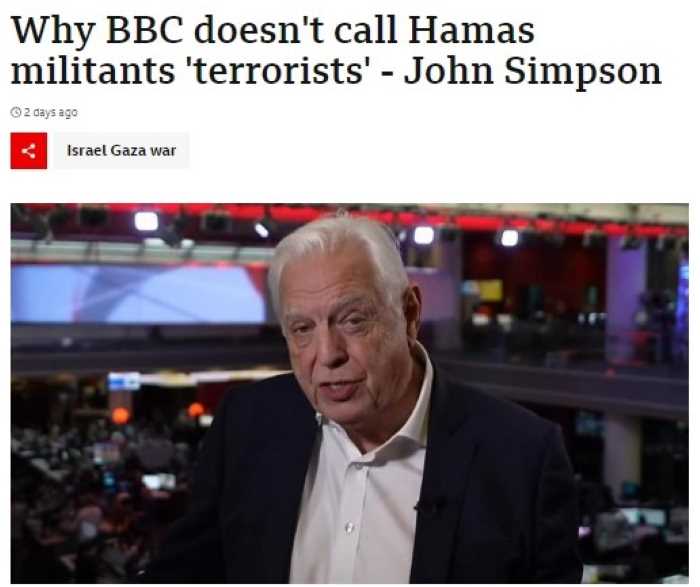
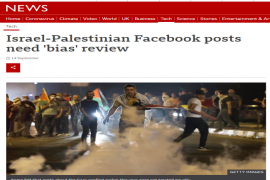

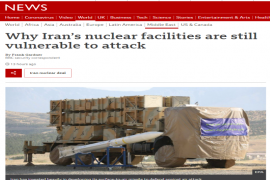
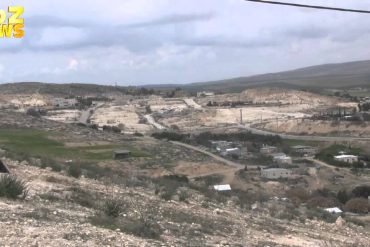
I wonder how Simpson has the temerity to dish up such tripe.
He appears to have closed his eyes to the fact in 2007 Hamas was elected to govern by the population of Gaza and has done so ever since with their acquiescence .
As such the population supported all Hamas actions and were not idle bystanders as the media would want the world to believe.
The population are guilty of war crimes as much as the terrorists! They never protested!